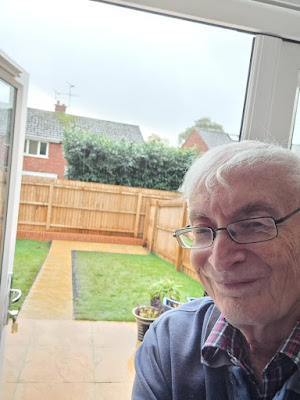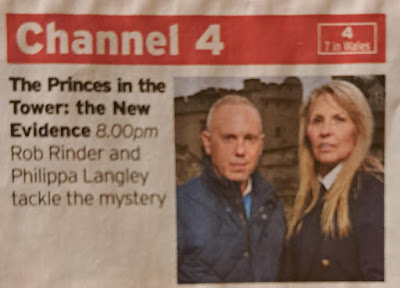08:00 What's the sort of things that can happen when two voracious history buffs wake up in bed together? Incidentally, don't worry, we've been married for 51 years, so that's hardly a scandal now is it haha!
And you know how history buffs like to talk about Franco, who was dictator of Spain from the 1930's till his death in 1975?
Yes, I think you've got the answer now, haven't you, if you put two and two together. Yes, when Lois and I are waking up in bed today, we soon find we are talking about Franco again, which is a stimulating start to the day, to put it mildly!
By all accounts, Franco wasn't a witty man. In fact, he made wit illegal in Spain, as we found out this week on Michael Portillo's "Andalusia" travelogue.
Well, it's a different aspect of the Franco story that gets mine and Lois's tongues wagging in bed this morning - why did Spain stay neutral during World War II, and not join in the war with her fascist allies Germany and Italy?
We check the quora forum website, and we're delighted to see that one of our favourite pundits, Aurelio Germes (crazy name, crazy guy, 4,523 followers!) has been weighing in on the subject again, which is nice.Aurelio writes: "General Franco intended to remain neutral unless Spain got significant rewards from Germany for assisting the Axis. But Hitler wouldn't agree to Franco’s requirements.
"Opinion in Spanish political and military circles was initially split on the question. Then finally, British money came into play. Churchill spent some €200 million, in today’s money, to influence generals close to Franco to remain neutral. This was done with the assistance of 'March', a banker and former spy for the UK in WW1.
" 'March' secretly kept almost one-half of the money [that the British Government sent him], but he spent the rest bribing several generals in the Spanish army to align in favour of neutrality and convince Franco to do the same. It was those bribes that made Spain decide to stay neutral.
"Other British MI6 agents were active in Spain encouraging this neutrality, including an MI6 agent Lieutenant Colonel Dudley Clarke, arrested by the Spanish police [in 1941] when they found he was "dressed
as a woman, right down to the brassiere”.
Bad mistake, Dudley! Any country like Spain, where it was illegal to be witty, or to wear a bikini, is not going to appreciate that kind of malarkey, is it. Be reasonable haha!
And it also begs the question - what size brassiere was Dudley wearing, when he was arrested? It must have been pretty small - see picture below. Your size suggestions on a postcard please, but no hurry on this one. After all Franco's been dead for nearly 50 years, so make it one of your long-term projects if you like haha!
flashback to 2013, when the UK Government finally released their files on Dudley
When arrested, Dudley apparently told Spanish police that he was a novelist, and that he "wanted to study the reactions of men to women in the streets". But Lois and I wonder... was Dudley wearing the right sort of women's clothes to get an accurate assessment? And could he have "glammed himself up" a little, with a bit more make-up perhaps?11:00 We do one or two things in the morning - we're not completely idle. And Lois's back is still troubling her, so we nip out to the Hanley Swan to post a parcel at the Post Office and also get a couple of ready meals.
13:30 We go back to bed for our afternoon "down time". But the idyll doesn't last long - wouldn't you know it, after about an hour or so, we get a visitor ringing our door-bell.
Luckily, however, we can see intruders coming down the street from our bed: the window is right by us, which is nice. So if you'd been with us, you would have heard another cry of "Bandits at 3 o'clock!".
"Bandits at 3 o'clock!!!" is our usual warning cry, in an amusingly whimsical [I'll be the judge of that! - Ed] reference to World War II RAF slang, as used by fighter pilots reporting the approach of enemy aircraft.
This time, the "3 o'clock" reference in the warning cry is particularly apposite, not just from the directional viewpoint, but also timing-wise: not quite, but nearly, because it's actually only 2:45 pm when the door-bell rings.
Adrian, our landscaper, expected "between 3 pm and 3:30 pm" according to his email, has arrived slightly early. He's come to fix up a bit of mortar round our shiny-new garden path, some mortar that got washed away in the great rains of a few days ago. He only takes about 10 minutes on the job and he says we'll get his quote for the grand plan to us in the next day or two.
Let me know if you've got any suggestions for amending the above rather complex "schematic". It won't be too late - the overall plan with path and shed base malarkey isn't "set in concrete" yet. [I think you'll find it is, if you think about it for 5 seconds! - Ed]
[Remember this picture? .... - Ed]
This is all very big news for history buffs - the biggest since the body of Richard III was found under a car-park in Leicester, and there's a big splash all about in the Radio Times this week.
History writer Philippa Langley, "the woman who won't take no for an answer", and whose work led to the discovery of Richard III's body, is teaming up with TV lawyer Rob Rinder to investigate whether Richard was guilty of the murder of the two princes in the Tower of London way back in the 15th century.
"Lambert Simnel (the Young Pretender) was really
(probably) himself, but cleverly pretended to be the Earl of Warbeck. Henry VII
therefore ordered him to be led through the streets of London to prove that he
really was.
"Perkin Warbeck (the Older and more confusing Pretender)
insisted that he was himself, thus causing complete dissension till Henry VII
had him led through the streets of London to prove that he was really Lambert
Simnel.
"The punishment of these memorable Pretenders was justly
similar, since Perkin Warmnel was compelled to become a blot on the King's
skitchen, while Perbeck was made an escullion. Wimneck, however, subsequently
began pretending again. This time he pretended that he had been smothered in
early youth and buried under a stair-rod while pretending to be one of the
Little Princes in the Tower. In order to prove that he had not been murdered
before, Henry was reluctantly compelled to have him really executed.
Punishment of Lamnel (or Wermkin)
"Even after his execution many people believed that he was
only pretending to have been beheaded, while others declared that it was not
Warmneck at all but Lamkin, and that Permnel had been dead all the time really,
like Queen Anne.
Fascinating stuff !!!!






























No comments:
Post a Comment